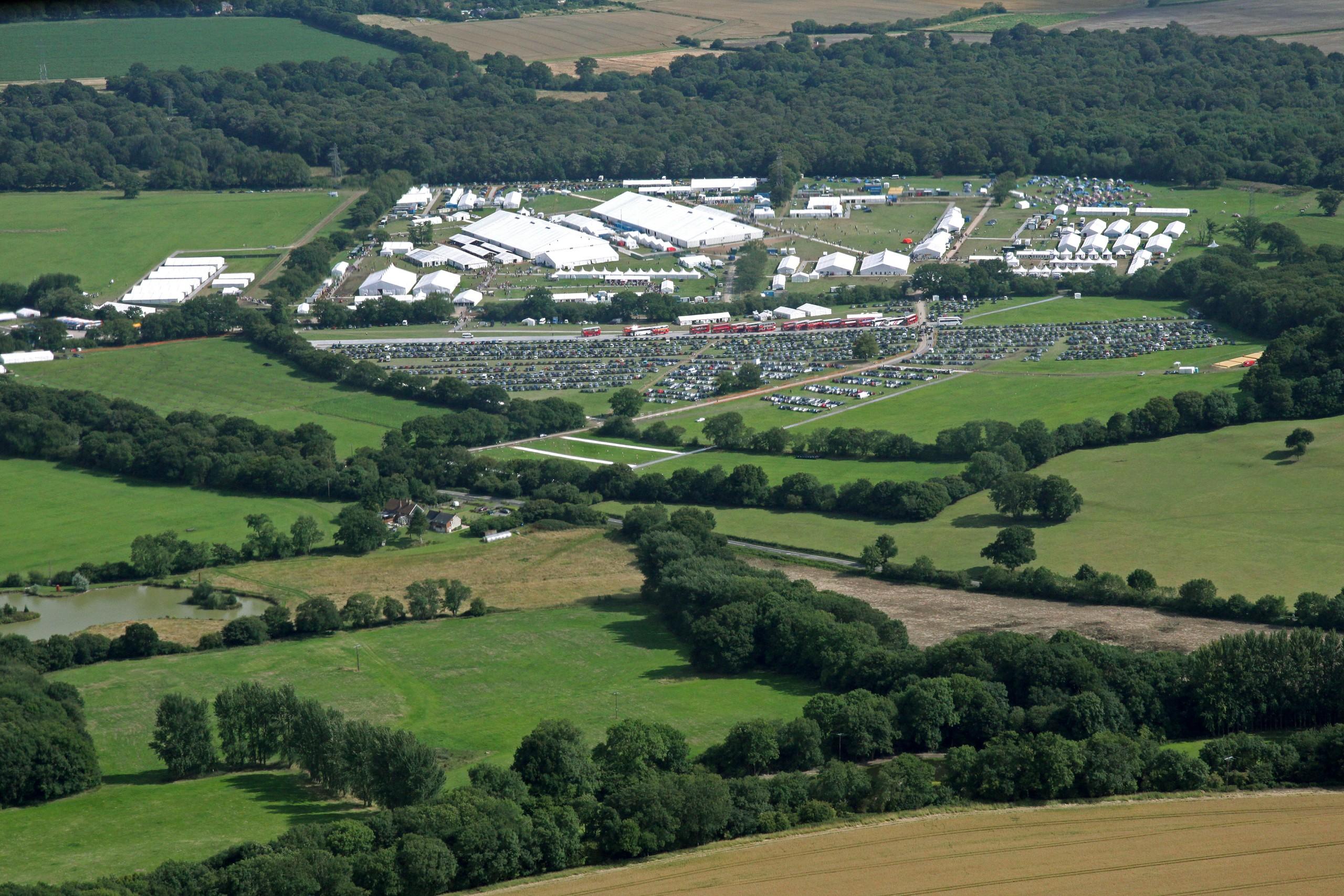40,000 Ahmadiyya Muslims attend huge convention at farm


Members of Ahmadiyya Muslim cimmunity spoke about the importance of “standing shoulder to shoulder” as a community as they attended the first day of a huge convention in the UK. Around 40,000 people are expected to attend the Jalsa Salana, which began on Friday and ends on Sunday – with some travelling from overseas to reach Oakland Farm in Alton, Hampshire, where the convention takes place. Fraz Ahmad, 19, a law student from Bradford – who said he journeyed for five hours on Friday morning to reach Alton, told the PA news agency: “I think it’s really important to remove the misconceptions around Islam and change the narrative, change the perspective, that people have upon it. “By people coming here and having a look at what true Islam looks like, and what we believe Islam is about, that’s the only way that narrative is going to change.” The convention, which is in its 57th year, was formed with the help of around 5,000 volunteers from the Ahmadiyya Muslim community. The convention offers people that chance to come together to “self-reflect” and “focus on spiritual goals for the coming year” and also features several highly symbolic services and sermons from the leader, or Caliph, of the Ahmadiyya Muslim Community, Hazrat Mirza Masroor Ahmad.
On Friday, the Caliph hoisted the flag for the community alongside the Union flag, which was raised by Rafiq Hayat, the national president of the Ahmadiyya Muslim Association in the UK. It was followed by a sermon from the Caliph, who addressed the current issues facing the community and society as a whole. Across the weekend, around 270,000 meals will also be prepared onsite by the volunteers, and the bread factory at the convention provides around 9,000 rotis – a flatbread which is eaten with meals – every hour for the attendees. Sarah Ward, a 43-year-old primary school teacher from Kingston, south-west London, said it is “really nice” to see the diversity of the Muslim community as well as the unity that comes with the convention.
“We know, as Muslim women, we’re very diverse, we’re not monolith, we’re from different backgrounds, we have different skills, we have different passions, we do different jobs, but we come together as one community,” the mother-of-three told PA. “We’re united under our Caliph, and it’s really nice to see that diversity yet that unity that’s there.” Of the Jalsa Salana, Ms Ward added: “As much as Jalsa changes – in that the marquees might be bigger or we might have more facilities – the essence of why we come to Jalsa is exactly the same. “We come here to listen to the speeches of our Caliph, to self-reflect, to self-improve. “It’s a pause in the year where we come together and we just have that space to enjoy our sisterhood and focus on our spiritual goals for the coming year, and you always come away quite refreshed.”
Munazzah Chou, 38, from Farnham, said the five daily prayers – which also include an “extra special” morning prayer at the convention – are made “more amazing” due to the “sheer scale” of the Jalsa Salana. “During Jalsa, everybody gets together and it’s an amazing experience,” Ms Chou, a doctor, told PA. “Prayer, in general, is all about coming together, standing shoulder to shoulder in a row, there’s no hierarchy, and during Jalsa, the sheer scale of it makes it more amazing.” The mother-of-three added that the convention provides “the feeling of sisterhood” and allows attendees to “[express] our morals”. “Hospitality is a huge part of being a Muslim, so being hospitable towards travellers and everybody you meet, it’s a big part of that, and every year we get an experience of that”, she added.
Meals are to be cooked onsite over the course of the weekend, with 772 pots of food made to cater for the convention on Friday alone. The kitchen also plans to prepare around 270,000 meals in total from South Asian and European cuisines across the three days. Javed Uddin, 57, from Leicester – who has been preparing meals for the convention for over 20 years, said he “loves working here”. “We’re all different ages, we come from different parts of the UK and abroad, and we all work together,” Mr Uddin told PA. “We usually cook dahls, which is lentils, in the afternoon, and then we cook lamb and potatoes in the evening.” Mr Uddin, who works at Asda, added: “When you do worldly things, you can work here like 14, 15 hours, which I’ve done many times, and you’re shattered and finishing at three, four, five o’clock in the morning, but it just keeps you going.”
The site is also equipped with a roti-making factory, which produces around 9,000 rotis every hour which are then hand-packaged and sent across the site. Fathay Rashid, 31, from London – who has been working in the onsite factory for around 10 years, said around 350,000 rotis will be prepared across the course of the three-day convention. Mr Rashid, who is a pilot, said they begin making the dough batches for the roti at 3am, the bread of which consists of whole wheat flour, water, sugar and yeast. Of his role at the Jalsa Salana, he said: “I love it. Every year I come back to do this, it’s voluntary work. “All the people you see every year, they’re like family, home.” On Saturday the Caliph will address the women in the female section of the convention, while all attendees will gather to pledge allegiance to the Caliph in a human chain formed of 40,000 people on Sunday.

